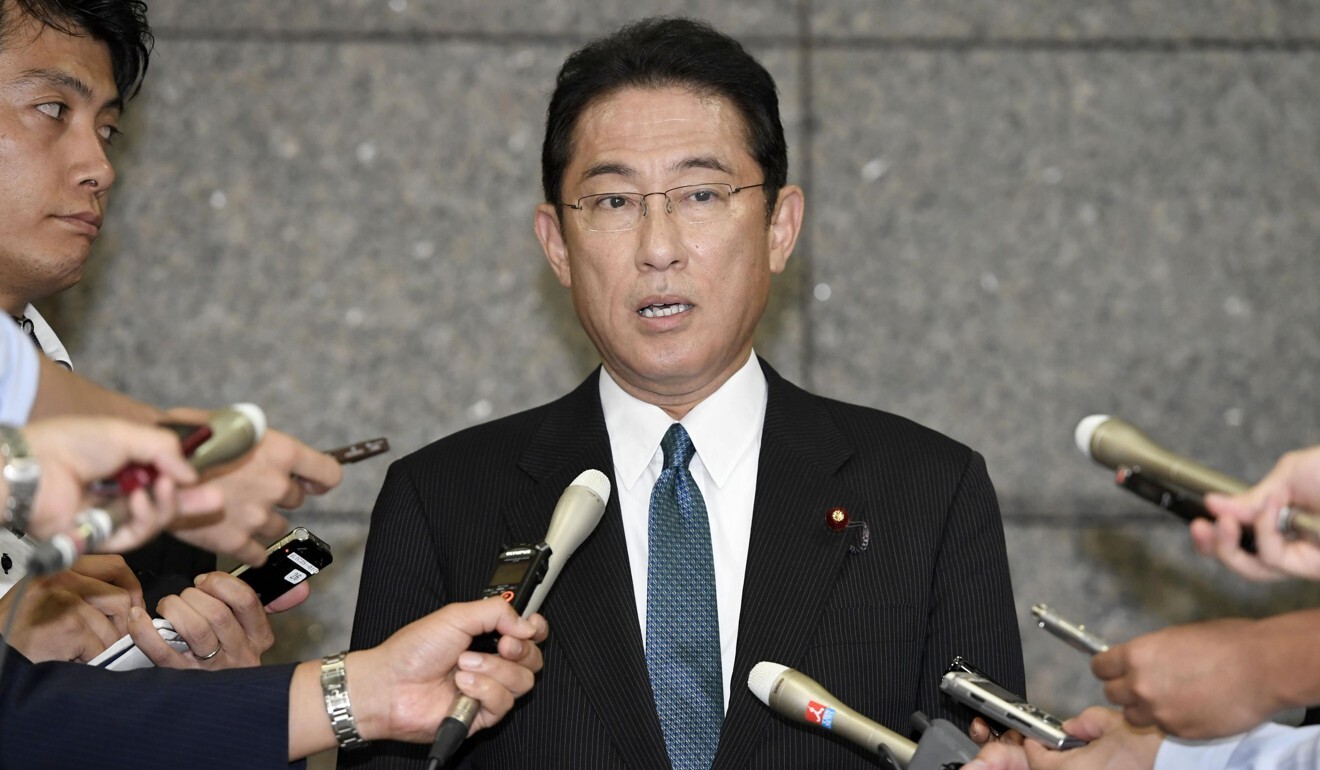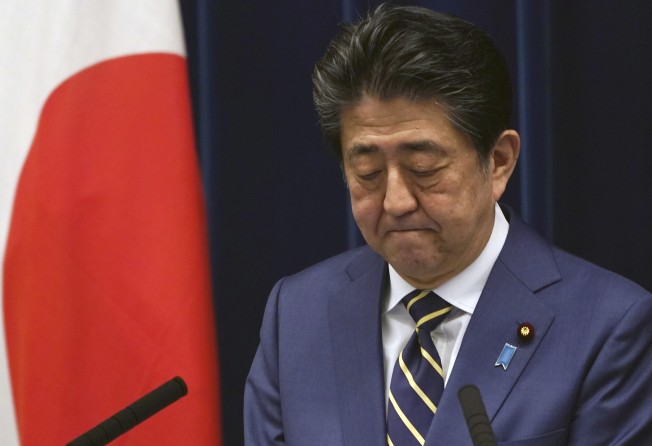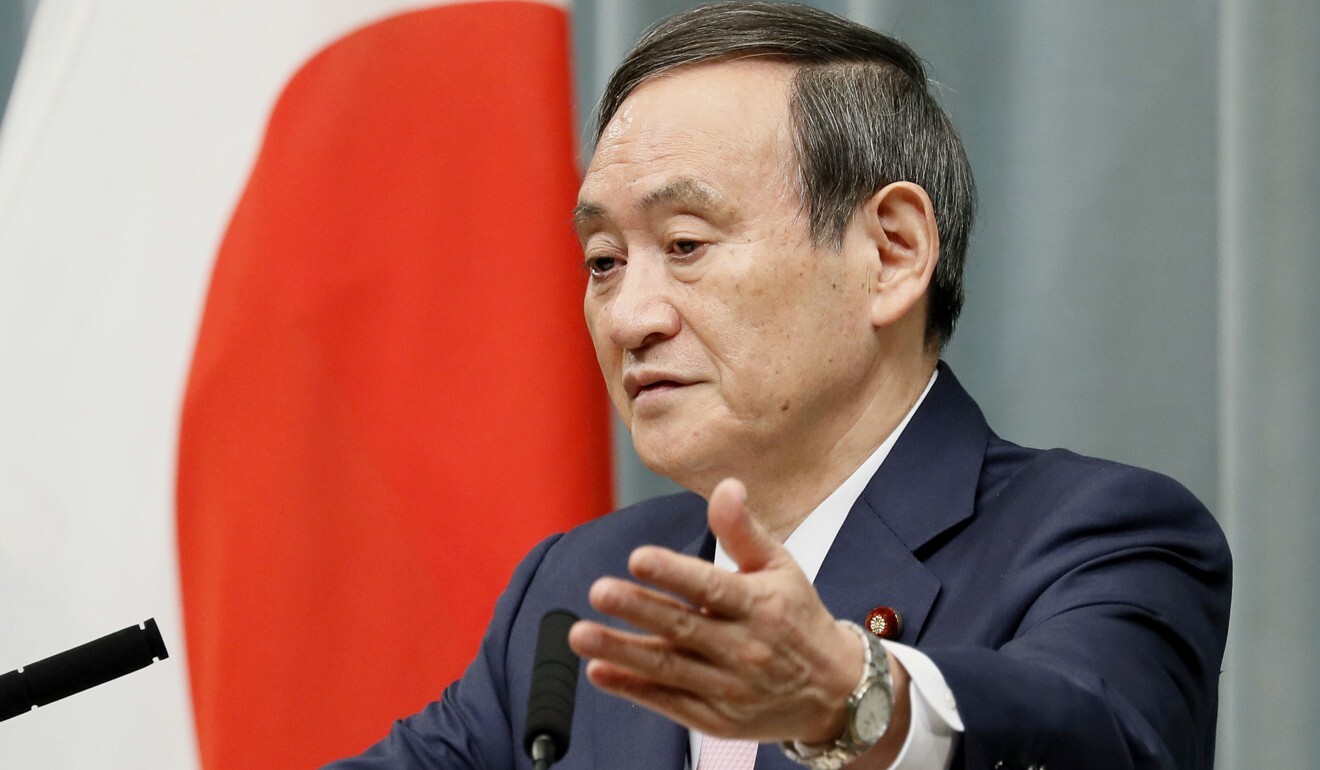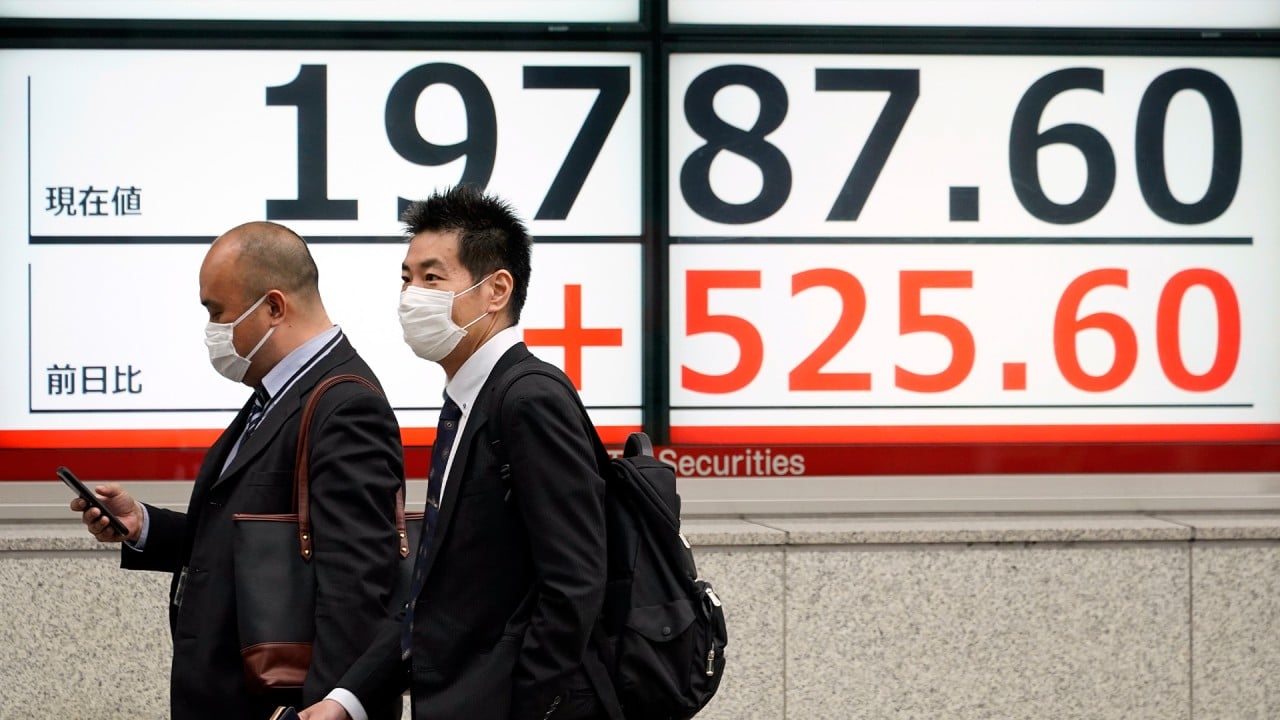
In Japan, even fans of Prime Minister Shinzo Abe want him to step down
- His approval ratings have been shrinking, amid political scandals and perceptions of the government’s poor response to the coronavirus pandemic
- For some of his own supporters, it is simply time for a change after a record seven years and six months with Abe at the helm

Two in three voters in Japan want Prime Minister Shinzo Abe to step down after his third term, a poll has revealed, amid rumours the ruling Liberal Democratic Party is considering changing its rules to allow Abe to serve an unprecedented fourth term.
The survey, conducted by the left-leaning Asahi newspaper, had 2,065 respondents contacted randomly by phone. Only 19 per cent said they wanted Abe to govern beyond the end of his term in September 2021, down from 25 per cent in February, with even LDP supporters saying it is time for him to go.
Analysts point out that Abe’s administration has been sliding in public opinion polls in recent weeks, although a poll by the Mainichi newspaper at the weekend did give the leader some respite, with a nine-point increase in his support rate to 36 per cent.
The government has come in for criticism, with its poor handling of the coronavirus pandemic compounded by a number of political scandals. And with Abe having served a record seven years and 181 days as prime minister as of today, some voters say it is simply time for a change.
Mitsue Nagasaku, a homemaker from Yokohama who voted for the LDP’s political ally, Komeito, in the last election, has been supportive of 65-year-old Abe as prime minister, but said he appeared to be running out of steam.
“He is looking tired and everyone knows that he stepped down the first time he was prime minister because he was ill,” Nagasaku said, referring to Abe’s resignation in September 2007 after 366 days in office due to a chronic stomach complaint.
“I also think he has done as much as he can, and that a new person might have more energy to deal with things like the economy and Covid-19,” she said.

Hiromi Murakami, a professor of political science at Temple University in Tokyo, said the man believed to be Abe’s preferred successor was not popular with voters.
“The suggestion is that Abe has been hoping to pass on the leadership of the party to Fumio Kishida, but he is not particularly popular at the moment,” Murakami said. “And Abe does not want to hand power over to the leader of another faction within the party.”
Kishida, the head of the LDP’s Policy Research Council, is a close ally of Abe, but the Asahi poll indicates that only 4 per cent of voters support him to be the next prime minister. That figure is down from 6 per cent in a poll in February.
“If Kishida cannot take over from Abe, the prime minister is now looking around for someone closer to his own faction who might be able to take on Shigeru Ishiba, who has emerged as the most popular choice,” Murakami said.

Ishiba, a former secretary general of the LDP, has the support of 31 per cent of the public, according to the Asahi poll. This is up from 25 per cent in February, putting Ishiba well ahead of Environment Minister Shinjiro Koizumi, who is on 15 per cent. While the latter is considered a future leader of Japan, the son of former Prime Minister Junichiro Koizumi is only 39 and still needs to earn his political spurs.
Other names that have been suggested include Defence Minister Taro Kono, Chief Cabinet Secretary Yoshihide Suga and Foreign Minister Toshimitsu Motegi, but none command significant support within a party that has ruled largely uninterrupted since its foundation in 1955 and is deeply conservative and traditional in its outlook.
Murakami said there were clear signs Abe’s administration was paying the price for the perception it mishandled the coronavirus crisis, with his much-vaunted policy of providing two masks to every household dismissed by 81 per cent of the public as not useful and a publicity stunt.
The government’s economic recovery policies have also come under the spotlight, along with the measures to help companies stay afloat.
Abe declared his virus-response package to be the world’s biggest, yet much of it remains stuck in Japan’s ageing administrative pipeline, blocked by paperwork, complexity and a lack of staff.
Almost 40 per cent of the funds budgeted for cash handouts to households still have not reached people despite their approval in late April, according to the internal affairs ministry.
As for business loans and job-protection subsidies, other key measures in Abe’s US$2.2 trillion package, only 14 per cent of about US$920 billion earmarked for smaller firms has been lent.

01:11
Japan’s economy gets US$1.1 trillion stimulus after coronavirus state of emergency ends
“There has been a steady drip, drip, drip of rather petty incidents that have hurt Abe, while I also think that for a man who has been in power for such a long time, he has never accumulated much in the way of goodwill,” said Jun Okumura, a political analyst at the Meiji Institute for Global Affairs.
“Those scandals and questions have rather piled up, he has done a poor job of explaining them away and I get the impression that despite the genuinely positive changes that he has introduced into Japanese society, the perception is that his time is up,” he added.
“But we must remember that he has also been a very lucky leader,” Okumura said. “Until coronavirus, he had never faced a situation like the Lehman shock or the March 2011 earthquake and nuclear crisis, while the opposition parties have been weak and divided throughout his time in office. Not being constantly challenged has certainly made his task easier.”
Abe’s approval rating fell to 27 per cent in a Mainichi poll conducted soon after a senior Tokyo prosecutor resigned in May for gambling during Japan’s coronavirus state of emergency.
On Sunday, the latest poll by Mainichi showed Abe’s approval had risen to 36 per cent, despite the recent arrest of his former Justice Minister Katsuyuki Kawai on suspicion of vote-buying.
The report did not give specific reasons for the rebound in support, but 55 per cent of those polled welcomed the government’s decision on Thursday to lift curbs on domestic travels.
Additional reporting by Bloomberg and Reuters